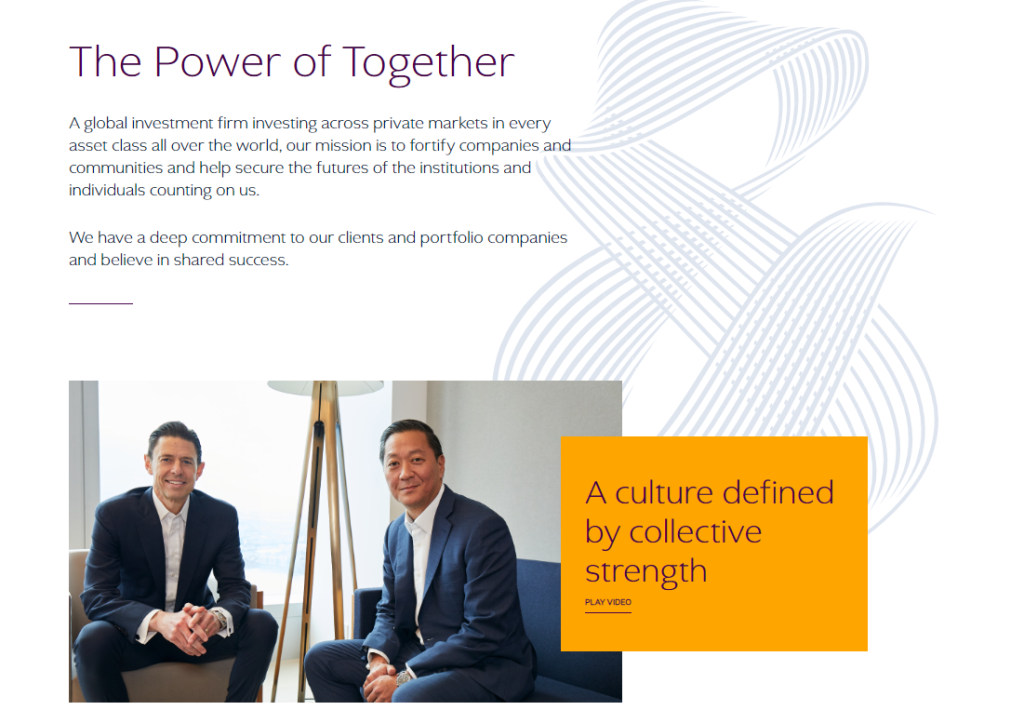Table of Contents
ToggleA Brief History of KKR
KKR & Co. Inc. is a global investment firm that was founded in 1976 by Jerome Kohlberg, Jr., Henry Kravis, and George R. Roberts. The company initially focused on leveraged buyouts and quickly became one of the leading private equity firms in the world.
KKR gained notoriety for its high-profile takeovers of companies such as RJR Nabisco in 1989, which was the subject of the best-selling book and later movie “Barbarians at the Gate.” The firm continued to expand its portfolio through acquisitions and investments in various industries, including energy, healthcare, and technology.
In 2007, KKR went public, becoming the first private equity firm to do so. This allowed the company to raise additional capital and expand its reach even further. Today, KKR is a diversified global investment firm, with a focus on private equity, energy, infrastructure, real estate, and credit. The company has offices in numerous countries around the world and manages assets worth billions of dollars.
Overall, KKR & Co. Inc. has a long history of successful investments, strategic acquisitions, and pioneering developments in the world of finance and investment.
Who Owns KKR?
KKR & Co. Inc. is a global investment firm that is publicly traded on the New York Stock Exchange. As a publicly traded company, KKR & Co. Inc. is owned by its shareholders, who own a portion of the company’s stock. The company’s top 10 shareholders include major institutional investors and mutual fund companies. As of the most recent data available, the top 10 shareholders of KKR & Co. Inc. are BlackRock Inc., Vanguard Group Inc., Wellington Management Company LLP, T. Rowe Price Associates Inc., Fidelity Management & Research Co., Canada Pension Plan Investment Board, ClearBridge Investments LLC, State Street Corporation, Morgan Stanley, and Capital International Investors. These shareholders hold significant stakes in the company and have a major influence on its direction and performance.
KKR Mission Statement

KKR & Co. Inc. is a global investment firm that seeks to generate attractive investment returns for its fund investors by following a patient and disciplined approach, employing world-class people, and driving growth and value creation at the companies in which it invests. The company aims to build long-term partnerships with its investors, management teams, and other stakeholders, and to be a leading voice in the private equity industry. KKR & Co. Inc. is committed to conducting its business with the highest ethical standards and to contributing positively to the communities in which it operates.
How KKR Makes Money?
KKR & Co. Inc. is a global investment firm that makes money primarily through fees charged to its clients, including management fees, performance fees, and transaction fees. The company earns revenue through its various investment strategies, including private equity, real estate, credit, and infrastructure investments. KKR also generates income from its capital markets and asset management activities. Additionally, the firm may collect interest income and dividends from its portfolio companies. Overall, KKR’s revenue stream is diverse and driven by its ability to generate attractive returns for its investors across different asset classes.
KKR Business Model Canvas
The Business Model Canvas is a strategic management tool that allows businesses to visualize and analyze the key components of their business model. It consists of nine key elements that help businesses to understand, communicate, and improve their strategy: Customer Segments, Value Propositions, Channels, Customer Relationships, Revenue Streams, Key Resources, Key Activities, Key Partners, and Cost Structure.
Customer Segments:
1. Institutional investors such as pension funds and sovereign wealth funds.
2. High net worth individuals.
3. Corporations seeking funding or strategic advice.
4. Government entities.
Value Propositions:
1. Access to high-quality investment opportunities.
2. Expertise in a wide range of industries and investment strategies.
3. Personalized and tailored investment solutions.
4. Proven track record of delivering strong returns.
Channels:
1. Direct sales and marketing efforts through a team of experienced professionals.
2. Partnerships with financial advisors and consultants.
3. Online platforms for investor education and engagement.
Customer Relationships:
1. Account management and personalized client service.
2. Ongoing communication and updates on investment performance.
3. Access to KKR’s network and resources for strategic advice and support.
Revenue Streams:
1. Management fees on assets under management.
2. Performance fees based on investment returns.
3. Advisory and transaction fees for strategic advisory services.
Key Resources:
1. Experienced investment professionals and industry experts.
2. Proprietary research and data analytics capabilities.
3. Strong network and relationships with global business leaders.
Key Activities:
1. Identifying and evaluating potential investment opportunities.
2. Structuring and executing investment transactions.
3. Providing ongoing strategic advice and support to portfolio companies
Key Partners:
1. Investment banks and financial institutions for deal flow and financing.
2. Legal and accounting firms for due diligence and transaction support.
3. Industry experts and consultants for market research and analysis.
Cost Structure:
1. Employee compensation and benefits.
2. Technology and infrastructure for research and analysis.
3. Marketing and client acquisition expenses.
KKR’s Competitors
KKR & Co. Inc. is a global investment firm that focuses on private equity, infrastructure, real estate, and credit investments. Its competitors include other major investment firms that operate in similar areas of expertise. Some of the top competitors of KKR & Co. Inc. include:
1. The Blackstone Group
2. The Carlyle Group
3. Apollo Global Management
4. Bain Capital
5. TPG Capital
KKR SWOT Analysis
Strengths:
1. Strong global presence in private equity, credit, and real assets.
2. Diversified investment portfolio across multiple industries.
3. Access to substantial capital and financial resources.
4. Experienced management team with a track record of successful investments.
Weaknesses:
1. Exposure to market fluctuations and economic downturns.
2. Reliance on external financing for investment activities.
3. Limited transparency in investment strategies and performance.
Opportunities:
1. Expansion into emerging markets and new investment sectors.
2. Strategic partnerships and alliances with industry leaders.
3. Growing demand for alternative investment vehicles.
Threats:
1. Intense competition from other investment firms.
2. Regulatory changes impacting investment practices.
3. Economic instability affecting investment returns.
Concluding Analysis
So, where does this leave KKR & Co. Inc.? As an analyst, I am cautiously optimistic about the future of this business. With a strong track record of successful investments and an adaptable business model, KKR is well-positioned to continue delivering value to its clients and shareholders. The firm’s focus on innovation and expansion into new markets also bodes well for its long-term success. While there are certainly challenges ahead, I believe KKR has the potential to thrive in an ever-evolving business landscape.
Additional Resources
To keep learning and advancing your career, we highly recommend these additional resources:
Business Model Canvas of The Top 1,000 Largest Companies by Market Cap in 2024
A List of 1000 Venture Capital Firms & Investors with LinkedIn Profiles
Peter Thiel and the 16 Unicorns: The Legacy of Thiel Fellowship












